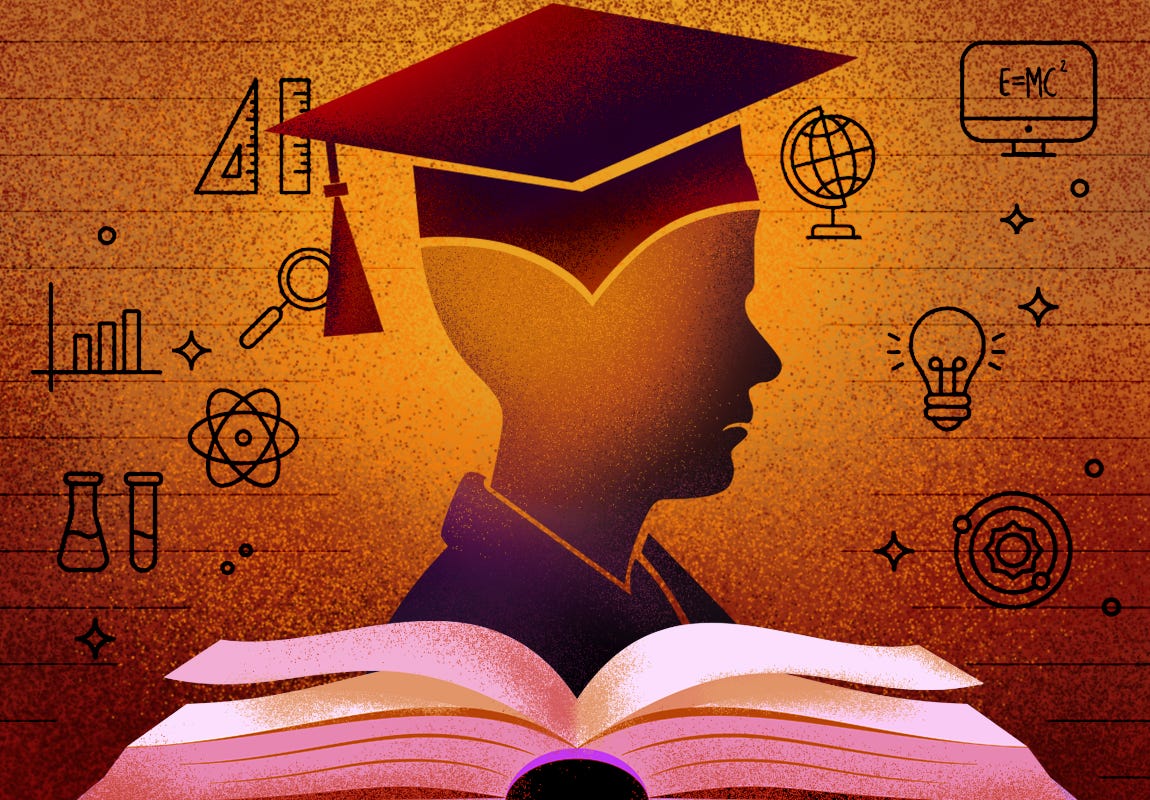Education for well-being, according to American educator John White, is built around acquiring personal qualities on the one hand and understanding on the other. The two go hand in hand with each other. When a child’s understanding becomes extensive, his or her dispositions are also enriched. Of the two, dispositions are more important. Parents and teachers give primary importance to the kind of person a child is becoming. They want the child to be helpful, enjoyable involved in what he or she is doing, be able to cope with adversity, be humorous, imaginative and confident.
The starting point of the education is that a child should have the positive qualities needed for a flourishing life. We would not want a child to be brilliant in Algebra and French, but also cripplingly anxious, or cynical, or with sadistic tendencies. According to John White, assuming that only parents do person-making, and only teachers do academic learning is erroneous; both parties are educators and both should be working to the same goals. The foremost of these are to do with personal qualities.
For having a flourishing life, there are various necessary conditions needed like shelter, good health, a minimum income and freedom. For example, let us take a look at health. Human beings are biological organisms. Schools have been used to dealing with only child’s mental powers – assimilating information, linking ideas, summarising, and remembering. While only concentrating on intellectual capabilities, schools are paying no attention to children’s physicality which is as important as the mind/ brain, when it comes to leading a flourishing life.
To get a clearer idea of well-being, we should start from our innate bodily desires and emotions, and the habituation needed to managing them well. Including health education and emotional learning in curriculum is the first step in this direction. Human beings are born with bodily desires – food, drink, physical activity, sex and rest – that we have to learn to manage. This training starts in infancy through parental training and continues throughout childhood and adolescence. During adolescence, young ones start taking control of their own actions. This involves their learning to take sensible judgements.
According to White, there is every reason to group all these desires together in our educational thinking. He says that there is no reason to keep physical education, school dinners and sex education hived off from each other in their separate boxes.
Literature through imagination can play a significant role in the refinement of emotions and in inculcating empathy.
Early habituation, increasing understanding, and intelligent judgement, reaction and action according to circumstances play a major role in managing our innate emotions like fear, anger and joy as well as more culturally dependent emotions like resentment, shame, anxiety, feelings of high self-esteem or low self-esteem, trust, confidence, warmth and love towards others.
Managing our emotions is important in our health. Let us take an example of a person having severe depression or anxiety or low self-esteem. That person would not be able to lead a flourishing life because these issues will lead to physical issues and takes a toll on his or her total health.
Literature through imagination can play a significant role in the refinement of emotions and in inculcating empathy. That is why arts should be given more prominence in education.
John White says” “Education for well-being is the shaping of love – love of our work, of nature, gardening, reading fiction, cycling, or and the manifold types of love we learn to feel towards other people at different levels of intimacy or non-intimacy. This love is directly connected with the other virtues, including, respect for others’ autonomy, recognition, mutual aid, honesty, friendliness, kindness and civic concern.
Self-knowledge is at the centre when it comes to well-being in education.
Whatever things we love or whichever path we choose, we all have to acquire dispositions of a general kind, whose function is to keep our lives focussed and to be held together in some sort of unity. We need persistence, confidence and flexibility to cope with obstacles to lead a flourishing life. When it comes to unity, given the multitude of different values we acquire, we have to find a way to judge their relative importance to us at different points.
The people who see schools as a stage to gather knowledge rarely champion its most important goal – self-knowledge. Being with other people who can help us see what we are really like is the best path to self-awareness. This is the most important virtue that keeps us in touch with what most matters to us. According to John White, self-knowledge is a practical virtue concerned with our overall self-guidance through life. It is more important than being able to remember the names of mountains or volcanoes which are prized within the educational system. Self-knowledge is at the centre when it comes to well-being in education. It thrives on everyday intercourse with others, literature and film, discussion and opportunities for private reflection and self-expression.
Now put on your thinking hats and think about the following questions for a couple of minutes.
Can you think of the importance of self-knowledge in education for well-being ?
Can you think of why managing your emotions is important for your total well-being?
Write down your thoughts and discuss them with your students, children and your colleagues. Listen to their views and compare them with your own. As you listen to others, note how similar or different your views are to others’.
Thank you for listening. Subscribe to The Scando Review on thescandoreview.com.
Happy Teaching!














Education for Well-Being - Part 2